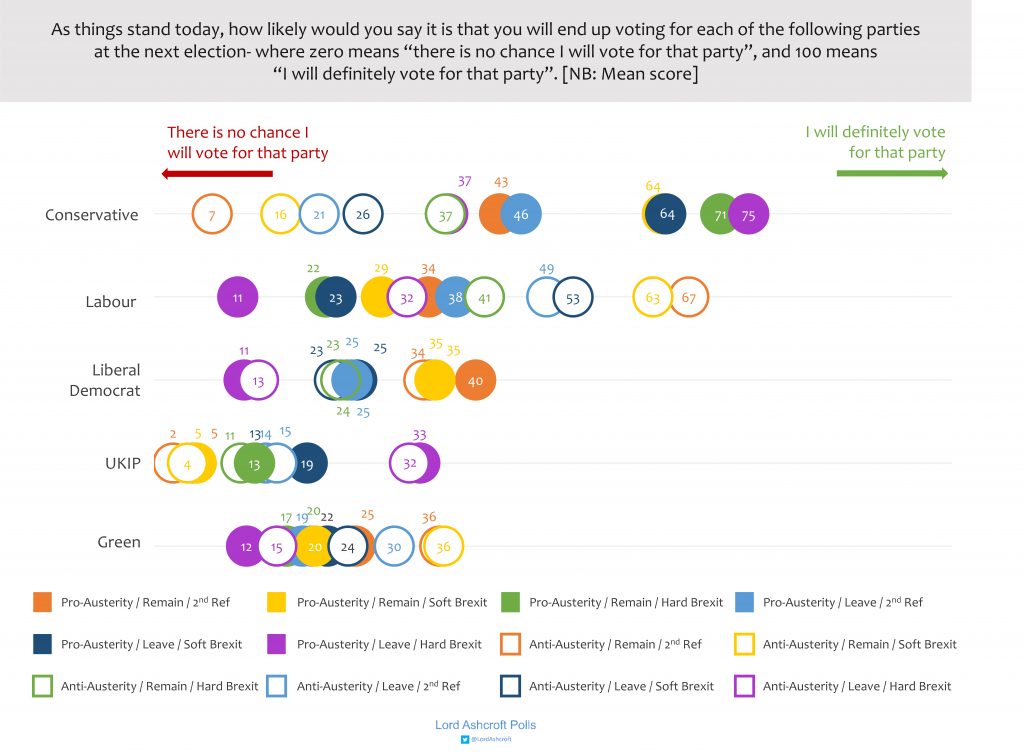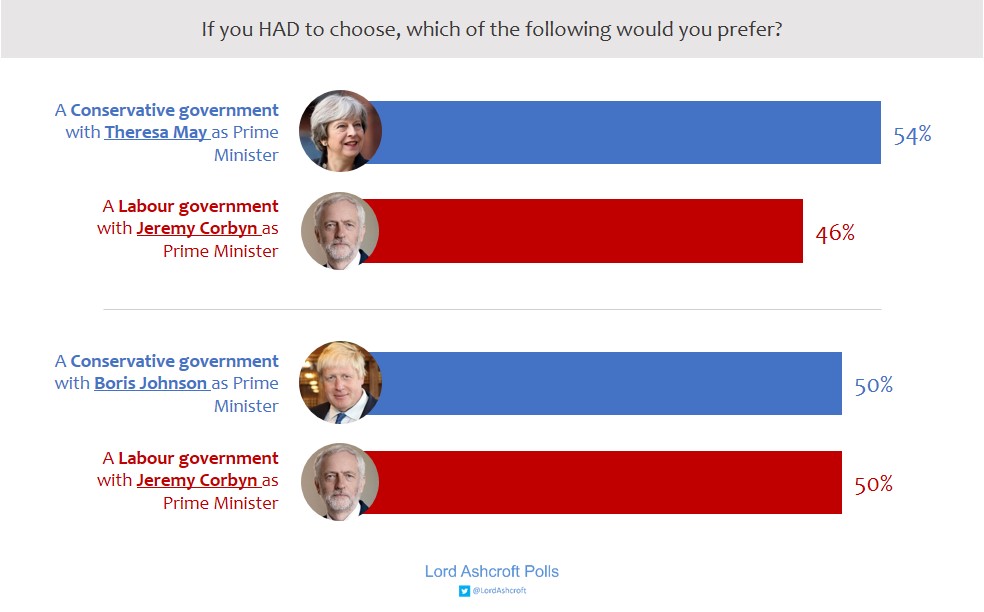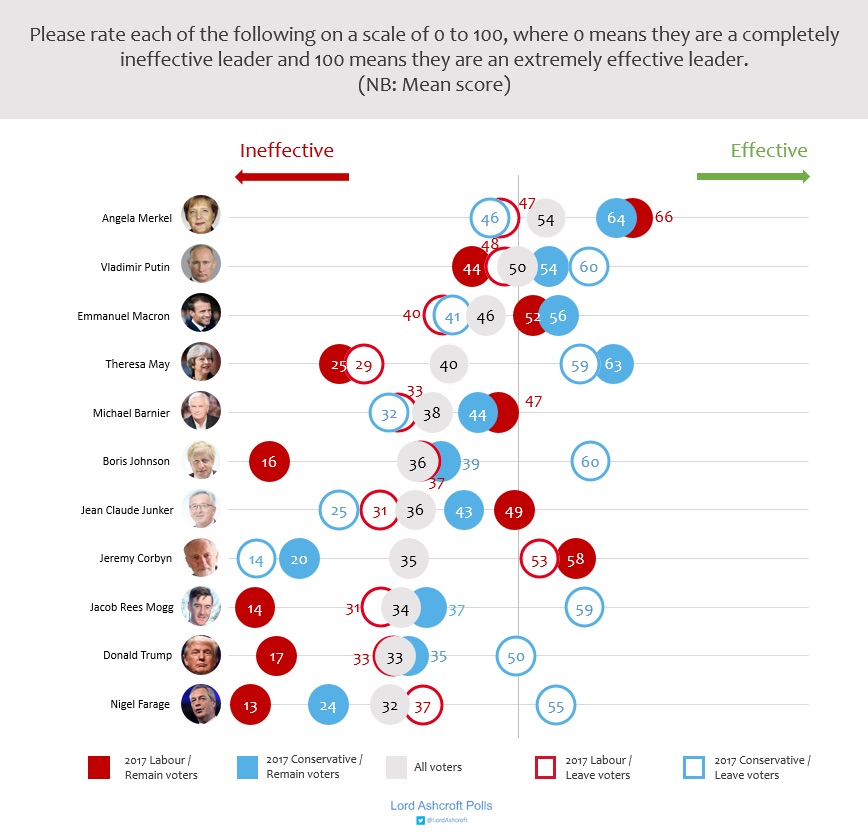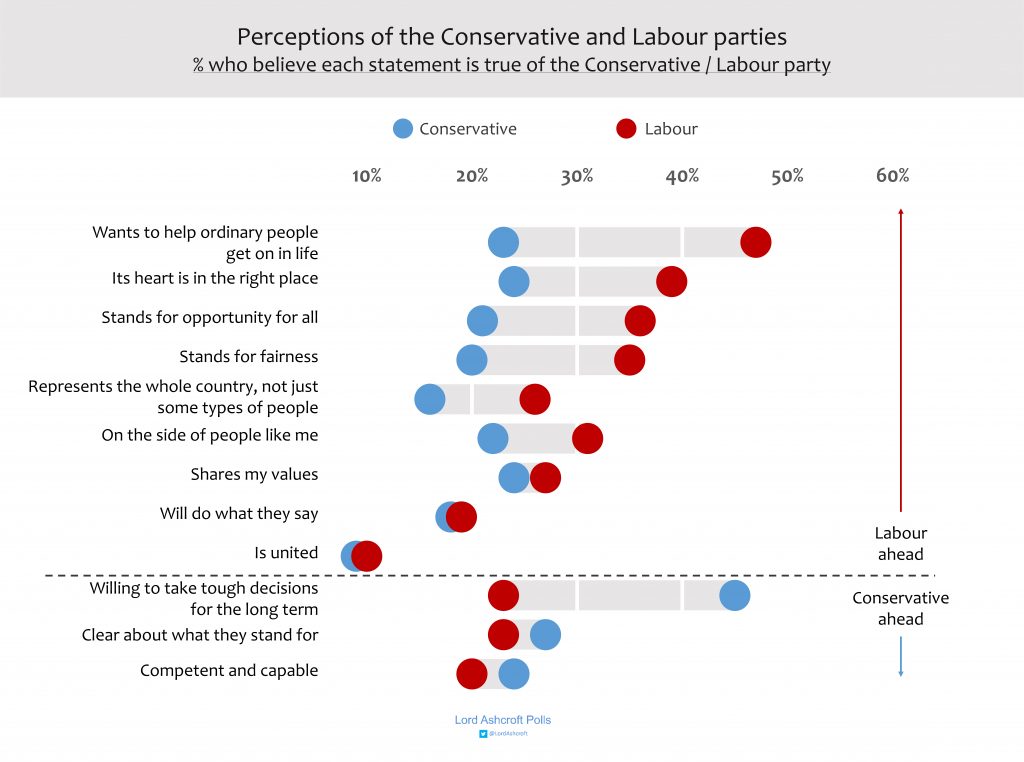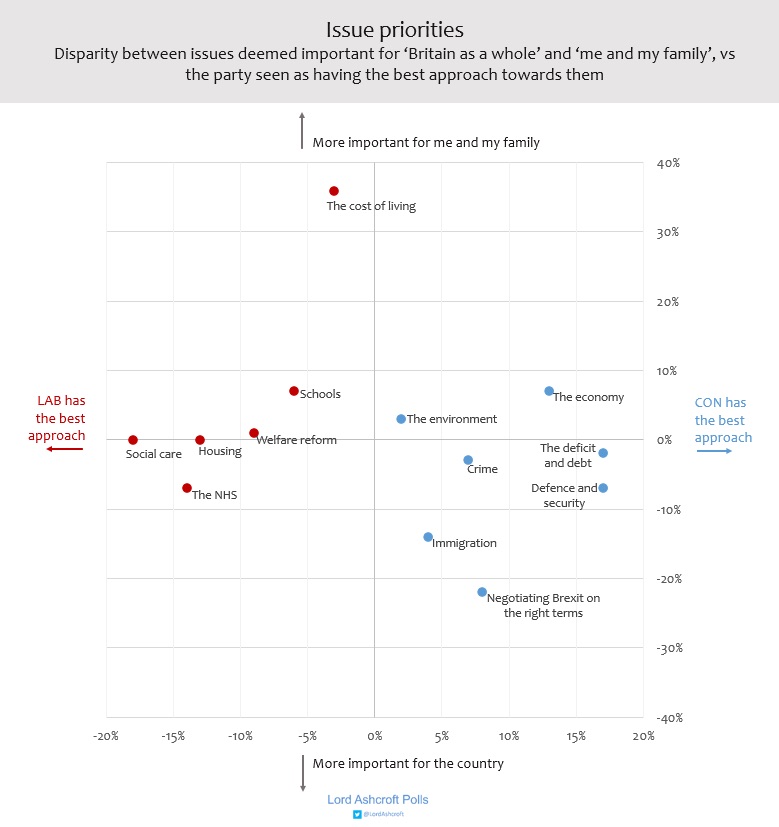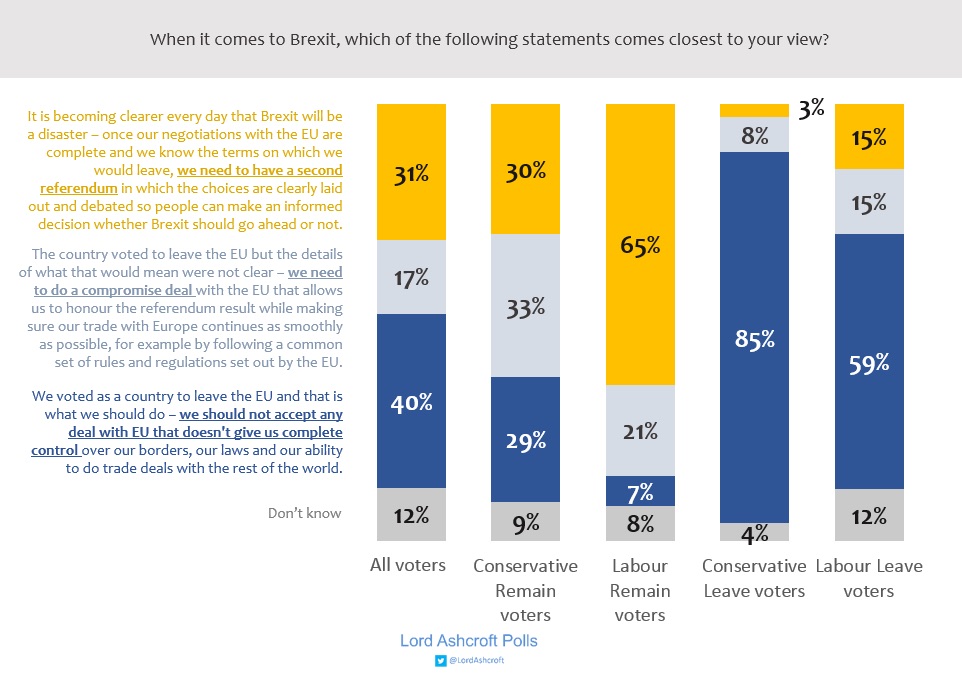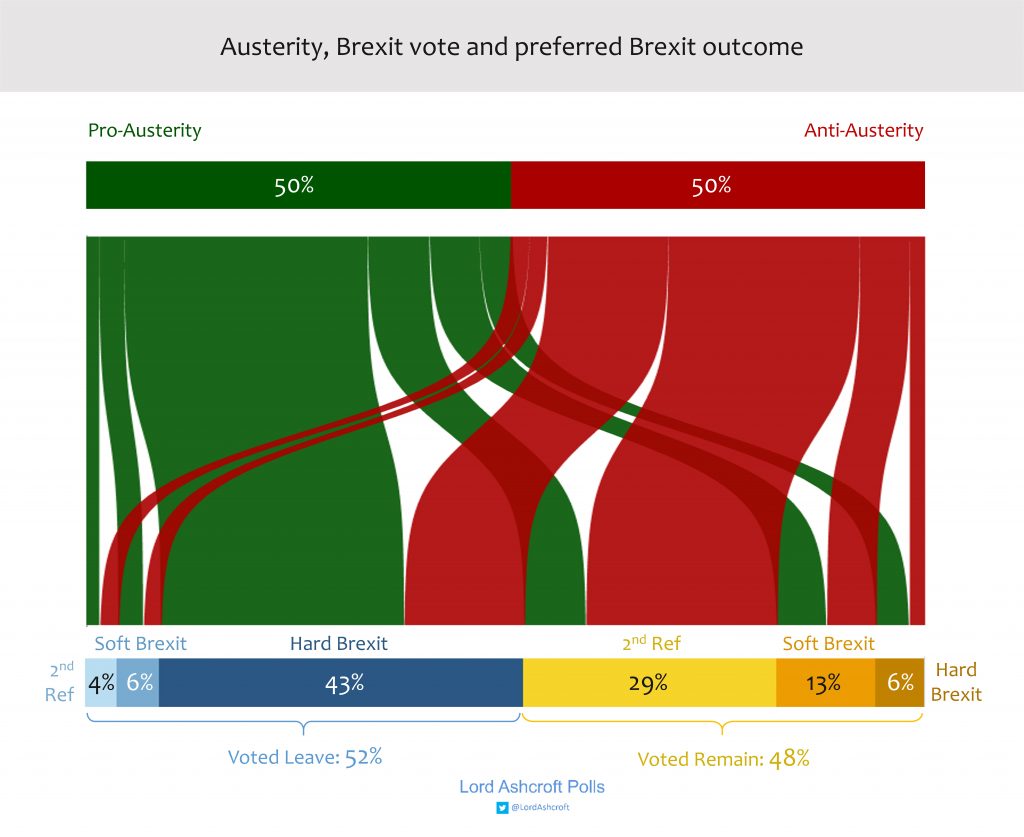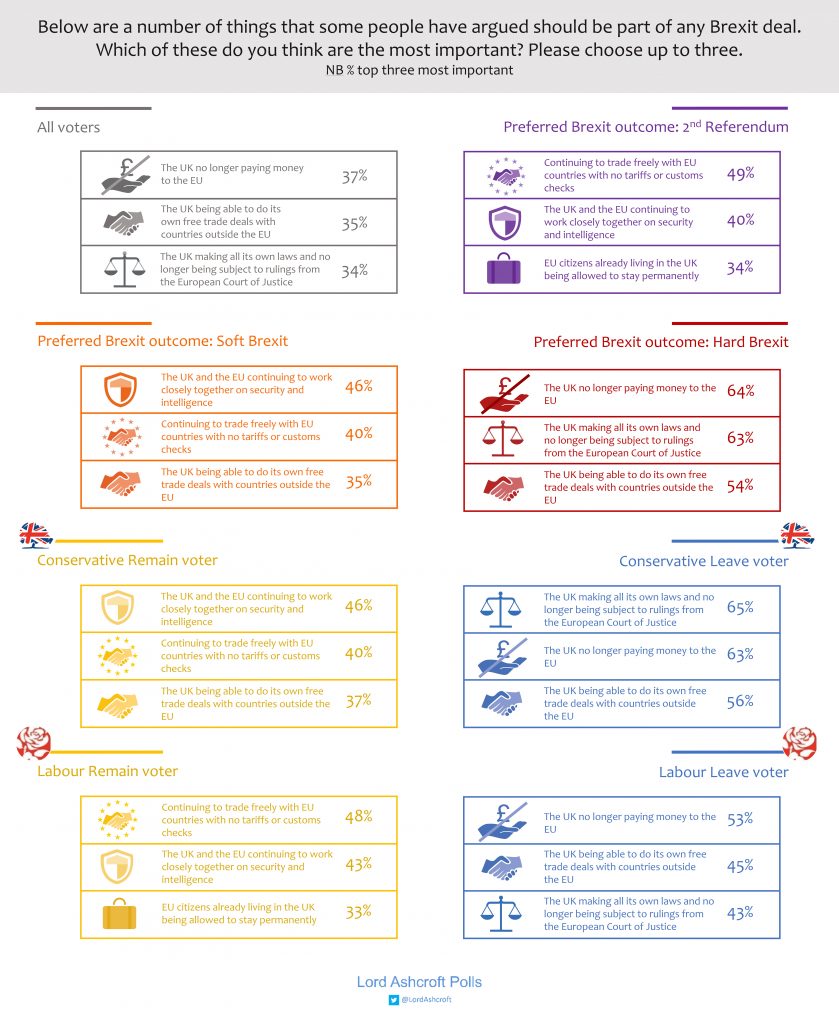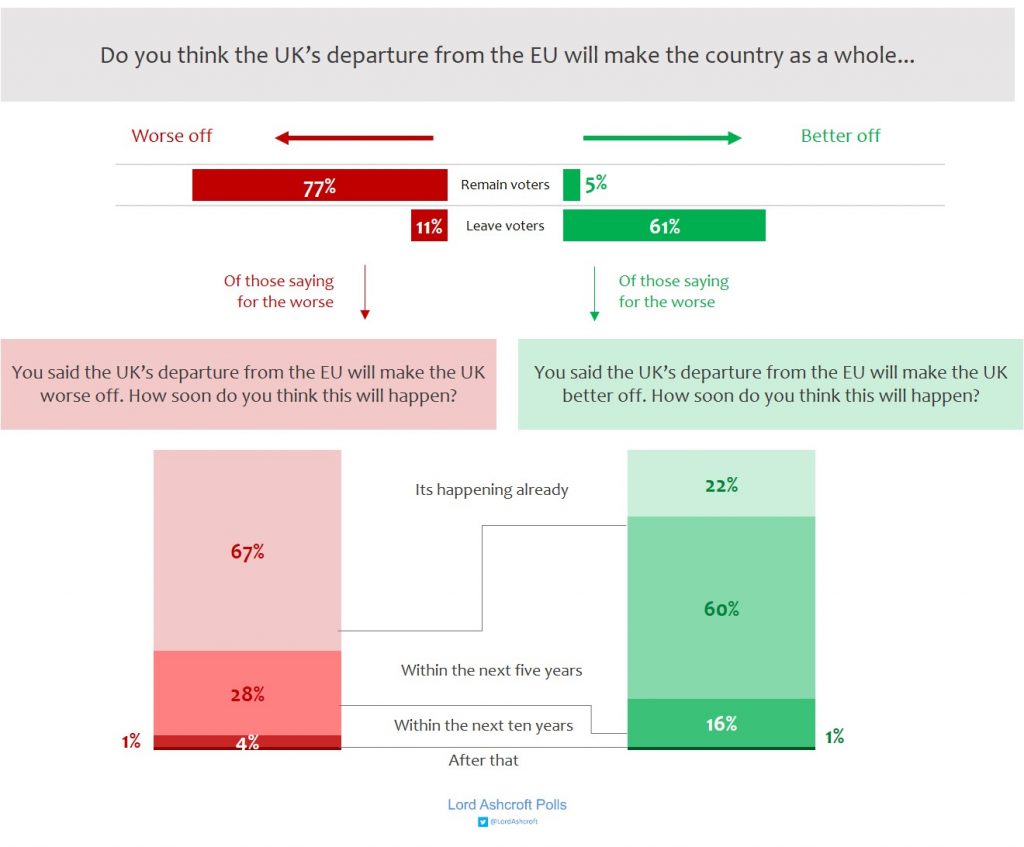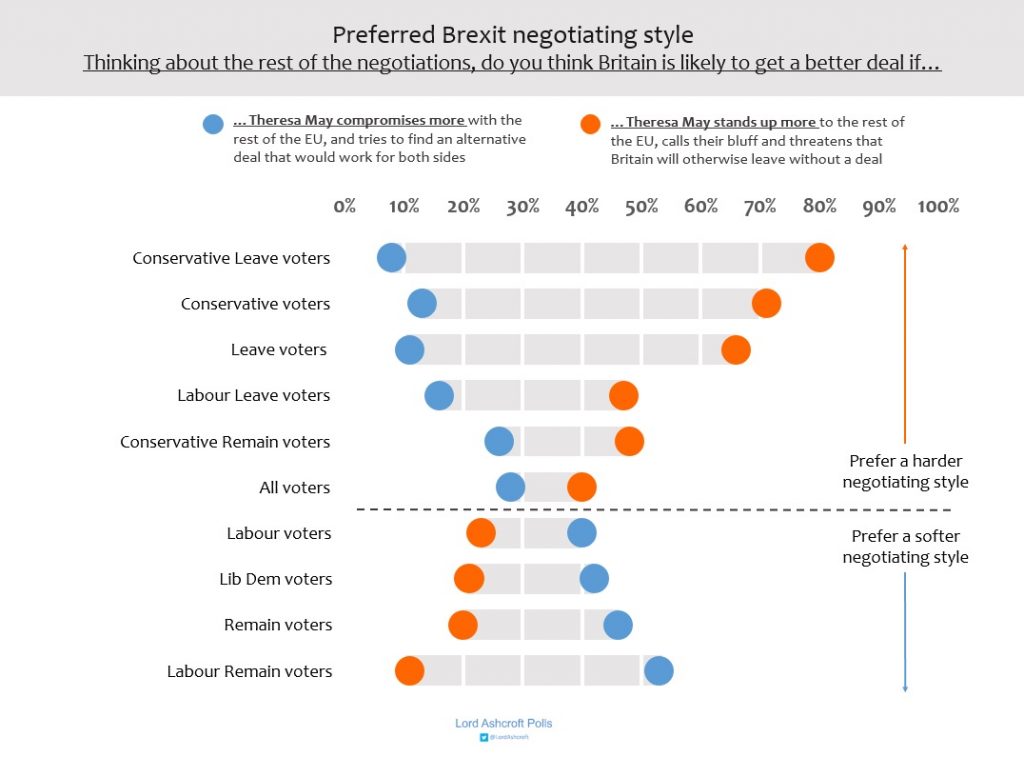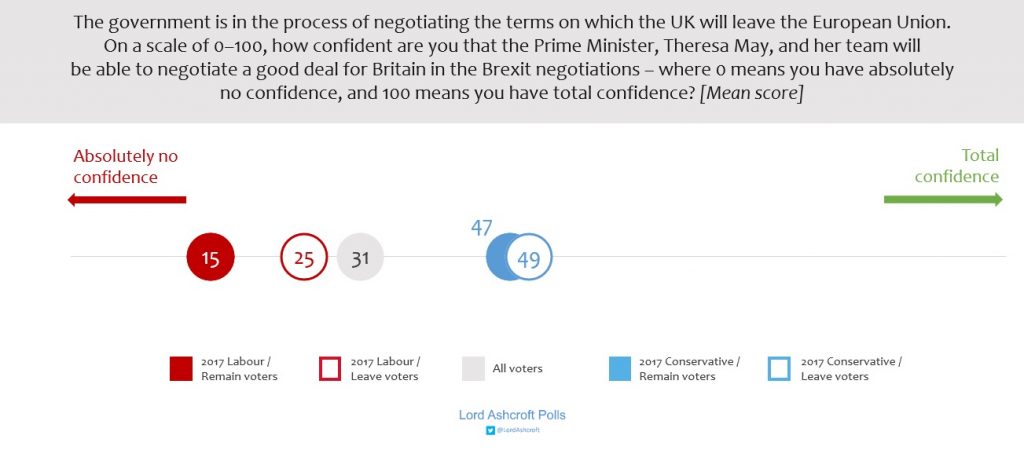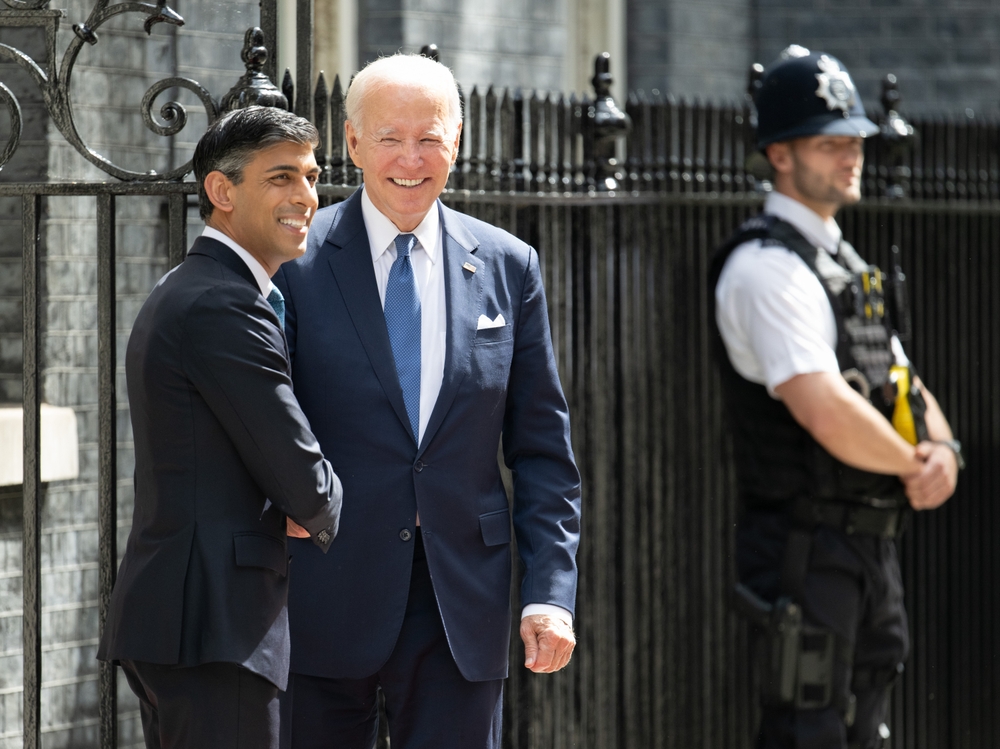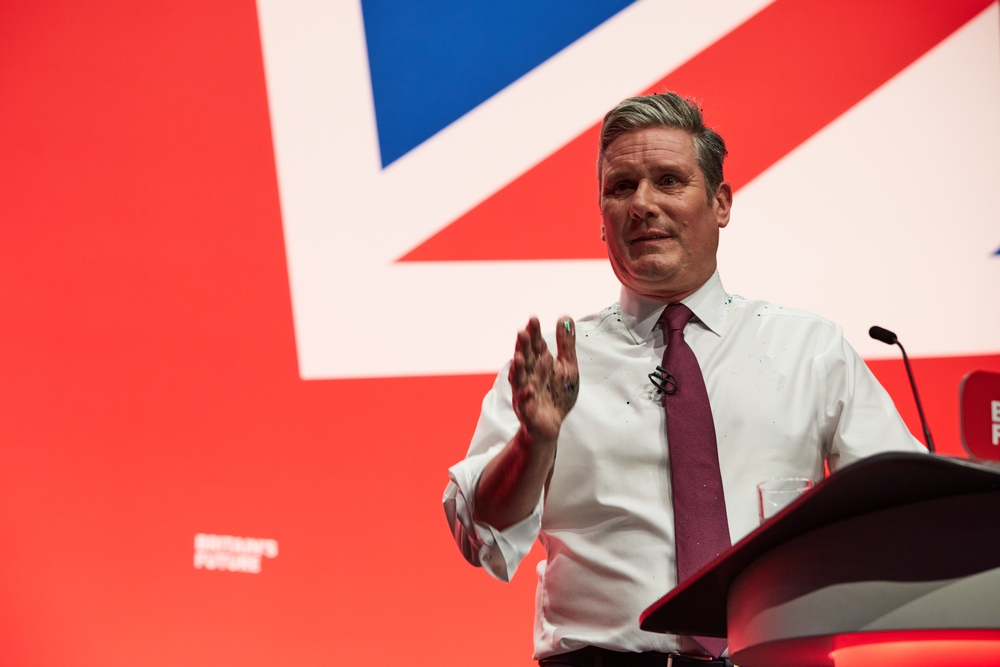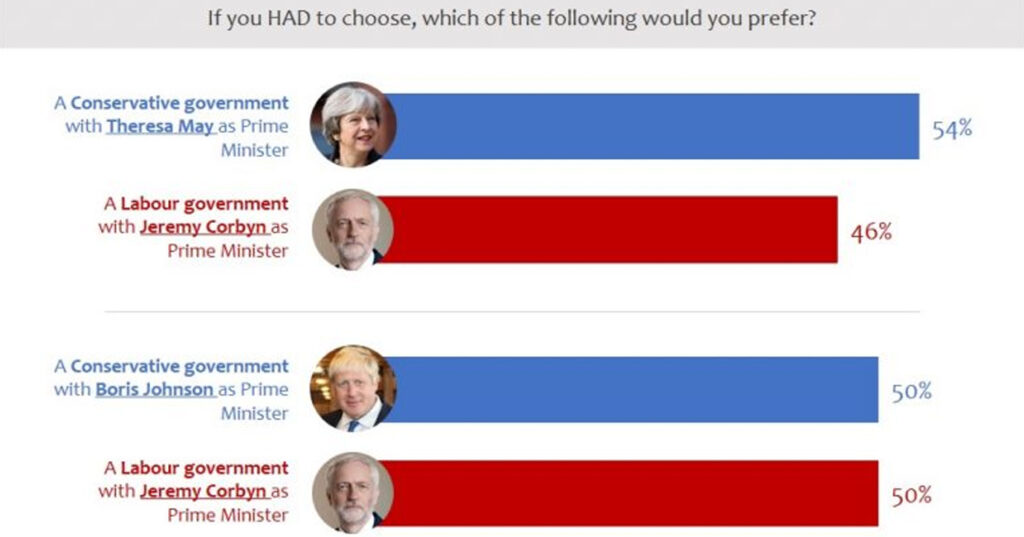
Few expect the Conservative Conference that begins in Birmingham today to be dominated by anything other than Brexit. Hard though this may be to avoid, it would be a wasted opportunity. As my latest research shows, if Brexit is at the top of the government’s agenda the same cannot be said for the voters: the next election will be about other things.
The parties and leaders
We asked people how likely they thought it was that they would end up voting for each party at the next general election. On average, those who voted Conservative last year put their chances of doing so next time at 77/100, however they voted in the referendum; 2017 Labour voters felt more inclined to stay with their party if they had voted Remain.
But we found a more revealing range of answers when we took into account people’s preferred Brexit outcome and, especially, their view of austerity. Leave voters who wanted to see a hard Brexit and had supported austerity gave a mean likelihood of voting Conservative of 75/100; anti-austerity Leavers for a hard Brexit put their chances of voting Tory at just 37/100.
Overall, pro-austerity voters gave a mean likelihood of 64/100 for voting Conservative and 20 for Labour. Anti-austerity voters gave 54 for Labour and 19 for the Conservatives. Leave voters gave 54 for the Tories and 24 for Labour. Remain voters gave 51 for Labour and 29 for the Conservatives.
Voters as a whole said that if they had to choose they would prefer a Conservative government with Theresa May as Prime Minister to a Labour government led by Jeremy Corbyn by 54% to 46%. Asked if they would prefer a Corbyn government or a Tory government with Boris Johnson as PM, voted split exactly 50-50.While Leave voters preferred May and Johnson over Corbyn in equal proportions, Remainers were more likely to choose Corbyn over Johnson than over May.
Whether they preferred a soft or hard Brexit, most 2017 Conservative voters believed that a Labour government with Corbyn as Prime Minister would be worse for Britain than what they regarded as the wrong Brexit outcome.
Asked to rate the effectiveness of a selection of leaders in the UK and around the world, voters as a whole put Theresa May in fourth place behind Angela Merkel, Vladimir Putin and Emmanuel Macron – though 2017 Conservatives put the Prime Minister at the top of their list. According to Leave voters, the most effective leader was Vladimir Putin.
When it came to perceptions of the main parties, Labour’s biggest lead over the Conservatives was on wanting to help ordinary people get on in life, while the biggest Tory lead over Labour remained being willing to take tough decisions for the long term. Less than a quarter thought either party was competent and capable, and only one in ten thought either was united.
While the Tories’ scores were largely unchanged since I last asked the question in January, a number of Labour scores had fallen – especially being united, being clear about what they stand for and having their heart in the right place.
Voters overall regarded the NHS as the most important issue facing Britain as a whole, followed by the Brexit negotiations and the economy. When we asked people what mattered most to themselves and their families Brexit dropped to third place, with the cost of living at the top of the list.
Combining these findings with voters’ view of which party has the best approach to each issue, we see that most issues on which the Tories are preferred to Labour are more likely to be thought important for the country; “Labour issues” were equally or more likely to be regarded as more important to individuals and their families.
Austerity and Brexit: the two divides
We asked people which of three potential Brexit outcomes they would most like to see. Four in ten voters overall – including a majority of Labour Leavers and 85% of Conservative Leavers – chose the “hard Brexit” option of not accepting any deal that does not give the UK complete control over borders, laws and international trade deals. Just over three in ten – including two thirds of Labour Remain voters – wanted the deal to be put to a referendum with the option of staying in the EU after all. Only 17% – including only one in three Tory Remainers – wanted to see a “soft Brexit” in which the UK followed a common rulebook with the EU.
Combining these findings with people’s views on austerity – which we found to be supported and opposed in equal measure – we see the difficulty of assembling an election-winning coalition on the basis of either issue. Just under half of Leave voters supported austerity, as did three in ten Remain voters; around one third of austerity supporters voted Remain, and nearly four in ten anti-austerity voters backed Leave.
The Brexit negotiations
Asked to choose from a list of potential outcomes from the Brexit negotiations, Leavers and supporters of a hard Brexit chose ending payments to the EU, the UK making all its own laws, and the UK being free to do its own trade deals outside the EU.
Those who preferred a soft Brexit most wanted to see the UK and the EU working closely together on security and intelligence, continuing to trade freely with no tariffs or customs checks, and the ability for the UK to do its own free trade deals with other countries. The priorities for second referendum supporters were continued free trade with the EU, security and intelligence co-operation, and EU citizens already living in the UK being allowed to stay.
Overall, just over three in ten said they thought Brexit would make the UK better off, while 43% thought the country would be worse off. This is because Remain voters were more likely to say things would be worse than Leavers were to say things would be better; Leavers were more than twice as likely as Remainers to say Brexit would make no difference.
Most of those who thought the UK would be better off said this would happen in the next five years; two thirds of those who thought the country would be worse off thought this was happening already.
Following the Salzburg summit and Theresa May’s statement in response, we asked voters which of two negotiating approaches was more likely to result in a better deal. Four in ten – including 80% of Conservative Leavers and nearly half of Tory Remainers – said the PM standing up more to the EU, calling its bluff and threatening to leave without a deal would be the more effective. The alternative of compromising more with the rest of the EU and trying to find a deal that would work for both sides was preferred by 28%, including 53% of Labour Remainers and only 13% of Conservative voters.
Asked how much confidence they had on a scale from 0 to 100 that Theresa May and her team would be able to negotiate a good Brexit deal for Britain, voters as a whole gave a mean score of 31 – down from 40 in May 2018, and 52 in March 2017. The biggest falls were among Conservatives and Leave voters.

